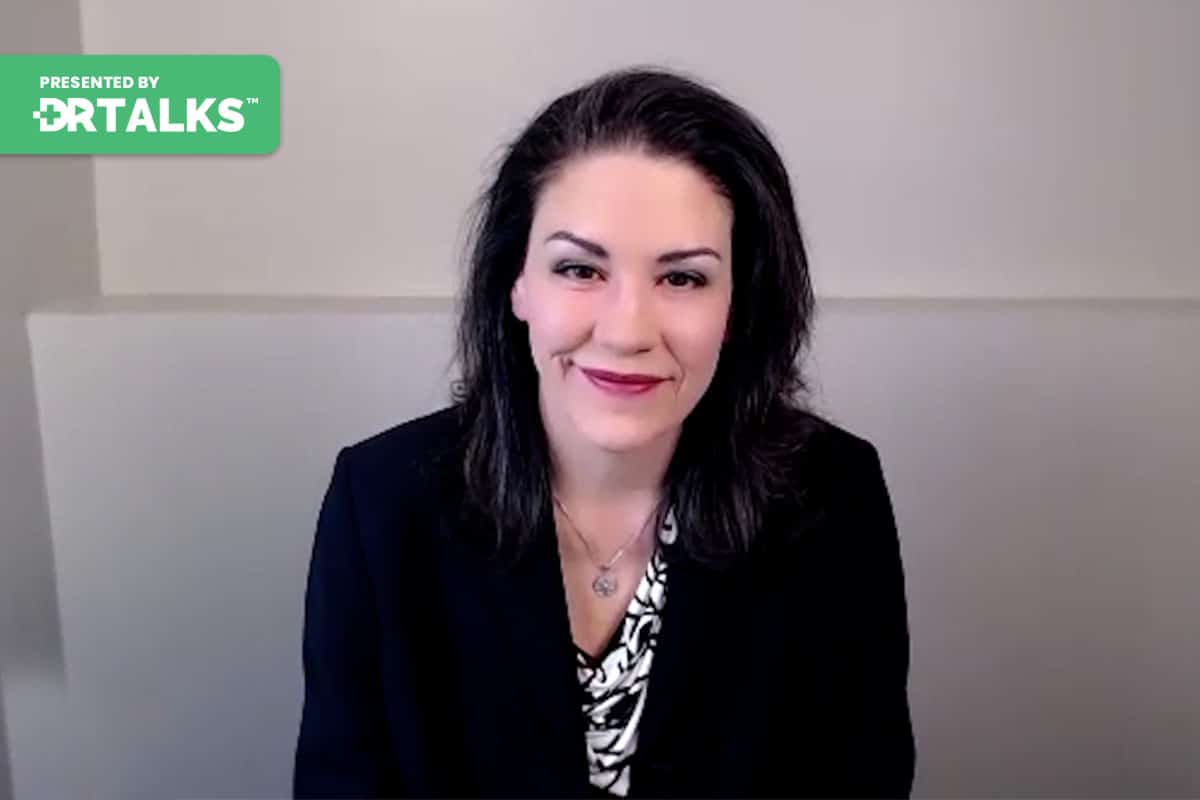Join the discussion below

Dr. Heather Sandison is the founder of Solcere Health Clinic and Marama, the first residential care facility for the elderly of its kind. At Solcere, Dr. Sandison and her team of doctors and health coaches focus primarily on supporting patients looking to optimize cognitive function, prevent mental decline, and reverse... Read More

Dr. Miles Nichols is a functional medicine doctor specializing in Lyme, mold illness, gut, thyroid, and autoimmunity. After Dr. Miles personally struggled with chronic fatigue in his early 20’s, Dr. Miles dedicated himself to figure out the root causes. He suffered with and recovered from thyroid dysfunction, autoimmunity, a gut... Read More
Dr. Miles Nichols discusses that an unhealthy microbiome can worsen microglial activation
- Understand the essential microglial activation research and its relationship with the progression of Alzheimer’s
- Discover the relationship between the rhinobiome (sinus biome) and amyloid plaque
- Learn about testing and treatment options
Heather Sandison, ND
Welcome to this episode of the Reverse Alzheimer’s Summit. I’m your host, Dr. Heather Sandison. I’m delighted to introduce you today to Dr. Miles Nichols. He is a functional medicine doctor specializing in Lyme, mold illness, gut, thyroid, and autoimmunity. After he personally struggled with chronic fatigue in his early twenties, Dr. Miles dedicated himself to figuring out the root causes of chronic disease. I’m excited to introduce you to him today. He is going to share with us a lot of these deep connections between the gut, sinuses, the microbiome, and how all of this affects our brain and most importantly, our cognition as we age. Dr. Nichols, welcome.
Dr. Miles Nichols
Thanks for having me. Dr. Sandison, looking forward to it.
Heather Sandison, ND
Tell us a little bit about your journey. What happened?
Dr. Miles Nichols
Well, growing up, I had a father who was in medicine and public health and politics, and many other things and was doing really good work in the world. In fact, he had just gotten elected a state senator when I was babysitting for a friend of my sister’s. I was about 15 when I got a call from an old-style phone. I remember it vividly, kind of cream-colored big phone on the wall with the curly thing that detaches it from the wall. And I picked it up and it was someone from the church saying something has happened, your father is in the hospital, you have got to go. And someone else came and took over and I went. And it turned out he had passed suddenly and unexpectedly from a heart attack. And that really threw me for a loop because he was a top medically trained Stanford Methodist Medical School, Yale Public Health, Masters of Public Health. I mean, Harvard Public Health Masters and top training and really invested in public health, and yet this had been a surprise to everyone.
We had not seen it coming. There was not the predictive and preventive level of medicine that I was really looking for, and I felt that stress was missed, that nutrition was missed. It just started opening me to look for a different way. And then when I was going through school, I struggled with chronic fatigue in my early twenties. I was having a hard time even getting through school. And when I was called into the principal’s office and talked to about the fact that my tardiness might impact my ability to graduate, I decided this was something I need to take very seriously and figure out. And in talking to her about it, she said, “I do not think this is, your grades are great, you’re intelligent, you’re doing well. It is just this inability to get there on time”, and I said, “I have tried. I sleep 9 hours, 10 hours. I’m still tired. It is hard to get going”. She said, “I think something’s medically wrong”. I said, “I agree, but I have gone to the doctor. They measured everything. They said, “We can not tell if anything’s wrong. Maybe you’re just a little depressed or something”. Cause I did not feel depressed at that time. I mean, I was a little depressed about the fact that I might not make it through school, but it was circumstantial depression, more than it was a feeling of despair unrelated to circumstance. So I started to get very serious about figuring this out, and that took me down the road of seeing sleep specialists, seeing integrative practitioners, and providers looking at every angle I possibly could. In nutrition, energy work, spirituality, mindfulness practices, and meditation practices.
I mean, I have done a lot of weird and wild things on my journey to try to figure this out and it took a long time. I have discovered along the way that I did have a subclinical thyroid issue that was not discovered, and I did have a gut infection despite not having digestive symptoms. I did have Lyme co-infections, Babesia and Bartonella both. And later discovered there was a tick problem in the place I grew up I did not know until just a few years ago and many, many other. I lived in a moldy place with mold exposure and I figured out I had an autoimmune attack against cells in my stomach. There was lots of stuff that I figured out along the way but it took a long time because no one put all those pieces together for me, unfortunately. I had some good mentors in functional medicine and I had to look directly at research, figure a lot of stuff out for myself, and rely on some really great mentors in order to piece the puzzle together and finally arrived at a place where now I feel great. Great energy, the brain fog is gone, the migraine headaches are very rare, and generally my health is amazing at this point but it took me a long time to get here.
Heather Sandison, ND
What a journey. You know, in my clinical practice sometimes patients when I first see them or they are first introduced to this medicine and this functional approach and finding the root cause, there is a little pushback. They are a little hesitant about doing all the labs so I really encourage people. What I hate having happened is waiting a year to figure out that lab we could have run a year ago had answered in it. And really, like you are sharing a very deeply personal story that emphasizes this kind of take-home message of let us just get all the data we can to figure out if there is a gut issue. Even if you do not have symptoms or even if you do not know you were exposed to all that let us go ahead, and run that lab so that we can figure out as comprehensively as possible early on in the game what is driving the imbalance or the dysregulation in your system. Even just in your story, it just illustrates if somebody can do that for you, what a gift, right?
Dr. Miles Nichols
Yeah, absolutely, and I know the topic of this entire summit is Alzheimer’s. My uncle passed away from Alzheimer’s, and that was hard to see. That was something that I could really see signs in my mom, too. This is something that starts a lot earlier than a lot of people think and by doing labs early, because there are some statistics that 80% of the American population does not know, the early signs of mild cognitive impairment, which means that a lot of people have early signs and may have early root causes already showing on labs when they do not recognize or realize that it is an issue, that is the best time to intervene. I wish for my father there had been a couple of years, a few years, 5, ten years ideally, but a couple of years at least of seeing it coming on labs and the kinds of labs that we can do that are predictive and preventive now, I am very confident that could have seen it coming and I would have been able to help if I knew then what I know now to do.
Heather Sandison, ND
And I love that we are both very committed to making this available to patients now. What we know now there is so much we can do. It is almost overwhelming how much there is that we can do to prevent and even reverse dementia and cognitive decline so let us not wait. But as you said, let us intervene early. So let us dive into the gut piece of this. Tell us at a high level, what is the gut-brain connection that everybody is talking about?
Dr. Miles Nichols
So I will start even one step back from that, which is that there are three big processes that are occurring from a very young age not a lot of people realize. And that is a natural sclerotic process, that is a cognitive decline process. And that is a process of cancer formation and cell formation. Now, the body for a lot of life does a good job at clearing out some of that plaque, clearing out some of those cancer cells, and clearing out some of the degeneration in the brain but these processes have begun way, way, way before even the most mild symptoms begin. It could be as children are starting some of these processes already. So from that perspective, the gut is one of the initiators of some of these processes and it is well understood. One of my favorites, because it used to be that neurologists did not recognize a lot about the gut and it was sort of the neurologists looking at the brain and the brain function, and then the gastroenterologists looking at the gut and the gut function. But over the past 10 or 20 years, there have started to become many neurologists that are studying gut bacteria.
One of my favorite studies was a study that looked at mice and took mice and fed some of them a probiotic feed and some of them a sterile broth with no probiotic. The probiotic-filled lactobacillus prognosis. And they subjected these mice to a stress test. They made them swim in water that they could not get out of. A forced swim test is very stressful on mice so it is something they are trying to get out, trying to get out of and they can not. Their stress hormone, corticosterone, which is like cortisol for humans, goes really high. They are stressed out and they will give up after a while. They almost resign and just float there. They do not want to be in it but they resigned to their circumstances eventually. What happened when they took these two groups is that the group that did not get the probiotic they did gave up after a series of a few minutes. The group that got the probiotic did not give up, they kept going and going. It was like they were regulating their stress response on the fly and they thought, “Why is this?” So they measured the brain chemicals and some of the hormones. They measured the stress hormone corticosterone and they found it elevated in both groups. But interestingly, they found GABA.
GABA is a neurotransmitter that is produced in the brain that helps in relaxing, inhibitory, and calming neurotransmitters. And there were these waves of GABA regulation in different areas of the brain for the mice with the probiotic. And they thought, “Why is this?” So they took the two groups, they took the one who had that change and they cut their vagal nerve, they did a vagotomy. So the vagus nerve connects the brain to the heart, the gut to many other places in the body, and immediately that force swim test reverted they did not have the same GABA regulation anymore in the brain, Meaning it was very clear that it was signals from gut bacteria through the vagus nerve to the brain informing and instructing the brain to regulate GABA levels in different areas of the brain to manage a stress response and create a more resilient stress response in those mice. That was an incredible study because there is no other explanation for why that happened.
Heather Sandison, ND
Wow, and it would not be ethical to do this in humans but we can of course, try some, hopefully, some correlations or we can extrapolate, if you will, to humans and say that if this is true for mice that share a lot of our genetics, like an alarmingly large amount of our genetics, that we are so similar to other mammals. That there is probably a connection in humans that also rings true. That having probiotics, consuming probiotics, whether that is in fermented foods or as a supplement, is going to be helpful in regulating our stress response. And we know that the stress response is directly related to our risk of developing dementia.
Dr. Miles Nichols
Absolutely, and there are connections to neurotrophic factors in the brain like BDNF decline has a lot to do with cognitive decline. And BDNF, Brain-derived neurotrophic factor, these are, the neurotrophic factor in the brain, are these things that help the brain be plastic. It helps with what is called neuroplasticity, which is the creation of new neurological pathways. And these pathways, when there is a decline in these neurotrophic factors become more solidified and that is part of the onset of cognitive decline and mental health dysfunction often results from a lowering of these neurotrophic factors. And we do know that there are some connections also between the gut and neurotrophic factors in the brain. There has long been evidence of certain brain dysfunction and mood issues with gut dysfunction. A long history of many studies showing people with IBS or irritable bowel syndrome have a much higher incidence of anxiety and depression than the general population, and we believe and understand that is also related to other processes involved in brain degeneration that could lead to dementia, Alzheimer’s as well. So there is another mechanism with the gut that is really important which is neuroinflammation or inflammation in the brain that plays a big role in the degeneration of the brain. Inflammation leads to degeneration, but how does the brain get inflamed?
There are lots of ways in which neuroinflammation can happen but one of the ways is connected to the gut. Since we are on the gut topic here, is that cell, the cell wall of gram-negative bacteria that is something called the lipopolysaccharide in it or LPS. This is what is called endotoxin. If it gets into the bloodstream, in the gut it is okay, but if it gets into the bloodstream and systemically the immune system sees it in the bloodstream, it says this is a problem. We know for example, there are a lot of studies where you can actually inject dead E. coli bacteria which we would normally find in the gut but dead E. coli bacteria directly injected into the bloodstream actually creates severe inflammation, including neuroinflammation, and neurologic symptoms, as well as people feeling miserable. So we know that gram-negative bacteria cell walls have lipopolysaccharide or LPS that make people very sick and create systemic inflammation and neuroinflammation. And we know that if people have intestinal permeability if their gut is leaky, if they have damage to the gut lining or barrier that is supposed to keep those bacteria in there, if the bacteria’s escaping into the bloodstream. We see this as one of the signs of a leaky gut by measuring antibodies against the polysaccharide in the blood and we will see that the immune system is attacking it, meaning it is getting into the bloodstream in big amounts. And that can happen with a leaky gut due to gut dysfunction and bacterial imbalances, overgrowths, infections, and other gut problems can create a leaky gut. So that when food goes in often a lot of bacteria can make it into the bloodstream and then that bacteria can cause endotoxin, which can lead to chronic systemic inflammation, including neuroinflammation in the brain that can contribute to mild cognitive decline, Alzheimer’s, dementia and mental-emotional dysfunction as well.
Heather Sandison, ND
I had an acquaintance ask me this morning, “Who is a leaky expert?” Now I can point directly to you, say, “Doctor Nichols in Colorado, he is your man”. So tell us, what do people do? Because what she really wanted to know was, and I gave her my two cents but what she really wanted to know was, what do I do about leaky gut? How do I prevent it? What do I need to get rid of? Is there something I should add?
Dr. Miles Nichols
Yeah. A leaky gut is one that is very common, unfortunately, I wish it were not but it is. There are tests to see if you have a leaky gut but often those tests just tell you that you have a problem that we probably can assume a lot of people have if there are other issues present. So there is an underlying root cause testing to figure out why a leaky gut might be present. Basically, the gut has these tight junctions. These tight junctions are supposed to be very close together and only they are these transport proteins that are supposed to let through nutrients, which is good. You want nutrients to get from the small intestine into the bloodstream but they are not supposed to let big undigested protein molecules through that can actually lead to autoimmunity, which is another topic for another day, maybe. But then, also, the bacteria can get through creating this endotoxemia. And these tight junctions there are nutrients that can help these tight junctions. There are foods that contain those nutrients that can help the tight junctions. However, if there is a problem in the tight junctions, first we have to ask, “Why?”. Because if you just try to go look at a leaky gut protocol and you take some glutamine and you take some things that are going to help with intestinal permeability and you do not deal with why you became permeable in the first place. Why did a leaky gut formed in the first place? It is like trying to patch a wall that’s been water damaged while the leak is still present. It is just going to get damaged again. So what I do not recommend is that people go directly to the things that can help repair the gut unless they are also simultaneously figuring out why and addressing that why.
Heather Sandison, ND
Is there a common reason? Yeah. What are common things that cause leaky gut?
Dr. Miles Nichols
Yeah. So there are some low-hanging fruits that I think a lot of people watching this summit are probably not engaging in but I have to say them. Things like alcohol, excessive consumption of alcohol is a big one, very high carbohydrate diets, a lot of refined carbohydrates are another. We can see a relationship between drug abuse and intestinal permeability. Even non-steroidal anti-inflammatory drugs or NSAIDs can contribute to some of the root causes of why people develop leaky gut so that is, pain medication, a lot of pain medications can contribute. So medication and substance abuse are two big ones, and a very poor diet or standard American diet. Now there are a lot of people who not abusing substances or drugs and I have a good diet. So what else? Well, we can see an infection like food poisoning, for example. You just go, “You get food poisoning”. Everyone has gotten it, most people have gotten food poisoning at some point. We know that, for example, one of the bacteria, Campylobacter Jejuni, can produce a toxin called Cytolethal Distending Toxin B, CTDB for short, which can cross-react with the immune system looking like, that toxin looks a lot like vinculin, which is a protein in the smooth muscle of the intestines. So the immune system is trying to deal with this toxin which was produced by a bacteria that caused food poisoning.
Maybe you are only sick for a day but it released this toxin and the immune system is trying to deal with that toxin and inadvertently starting to attack smooth muscle in the intestine. That smooth muscle is part of the intestinal barrier and it is part of what is called the motility complex. The motility complex is how your intestines flush bacteria in degrees out of the small intestine into the large intestines without that functioning properly, there is a development, oftentimes, of an excessive amount or an overgrowth of bacteria in the small intestine. This is what is called SIBO, or small intestinal bacterial overgrowth. We see SIBO being one of the big causes of leaky gut. Now SIBO has an infectious cause of food poisoning leading to cross-reactive autoimmunity leading to impaired motility, leading to overgrowth like I just discussed. Low stomach acid or abdominal scar tissue from surgeries or surgical procedures or ileocecal valve issues. There are many ways in which bacteria can begin to overgrow in the small intestine. If we have bacterial or fungal overgrowth in the small intestine that puts gas pressure in the intestines. When you are digesting food normally the small intestine has fewer bacteria, and so you are metabolizing the nutrients. Transport proteins are bringing nutrients into the blood and that is really good. It moves through the small intestine and then in the large intestine there are many, many bacteria that are fermenting and creating gasses, and the large intestine is built to handle those gasses.
The small intestine is built to handle a more modest level of gas with a smaller number of bacteria, there are still bacteria there. However, when those bacteria overgrow to an extent we see that the gas pressure increases. That contributes to inflammation and swelling, which creates those tight junctions to loosen and it allows for these bacteria and endotoxin to get into the bloodstream and creates many other problems as well. So SIBO or bacterial overgrowth, SIFO, or fungal overgrowth in the small intestine are two big causes. But then what causes those food poisoning, low stomach acid, very poor diet, and NSAIDs can contribute. PPIs, proton pump inhibitors, or acid-reducing medications can contribute to those. Then there are other gut issues as well that we have not gotten into like parasites and infections and bacteria that are problems.
Heather Sandison, ND
But antibiotics can cause a lot of dysbiosis in the gut. Can they directly contribute to a leaky gut?
Dr. Miles Nichols
Yeah. There is definitely evidence of antibiotic use contributing to gut dysbiosis that leads to a leaky gut so absolutely, there can be a connection there. And there can be a connection also with antibiotic use leading to a situation where the immune system becomes dysregulated and then we are more susceptible to infections, be those gut infections or systemic infections. It is sort of like if you use 70% to 80% of the immune cells residing in the gut. When the gut becomes dysbiotic we are not just dealing with a gut issue now we are dealing with a systemic immune system issue, and susceptibility to infections and we know there is a strong connection between infections and neuroinflammation in the brain as well.
Heather Sandison, ND
Gluten is another one that I often hear of as directly causing leaky gut or certainly contributing to it. Have you connected those dots?
Dr. Miles Nichols
Yeah, and I would say food sensitivities and allergies are a whole category. With gluten, it can be a celiac autoimmune issue but that is a very small percentage of people. A much larger percentage of people having non-celiac gluten sensitivity, and that non-celiac gluten sensitivity can absolutely contribute to inflammation and intestinal permeability. It just so happens that gluten has a very high connection in research with an increase in insulin and some of the proteins that are involved in those tight junctions being dysregulated. So it is one of the prime food sensitivities that we look for when it comes to initiating intestinal permeability.
Heather Sandison, ND
So just to summarize, what I got was, do not do drugs, probably reduce the alcohol a little bit, maybe stay away from some of the carbohydrates and certainly those highly processed carbohydrates, and probably, maybe even gluten for the most part, and stick to, if you are going to be consuming carbohydrates, more starchy vegetables and fruits, maybe seasonal fruits. Having a diet that is richer in those things rather than packaged processed foods and then avoiding, maybe, antibiotics and certainly, food poisoning. I think we all do our best to avoid food poisoning, but avoiding the introduction of bacteria that are kind of potentially creating more inflammation, more gas, and a leaky gut would be helpful. Are there other direct takeaways that you think our audience should start? Behavior change, modifications that we can make today?
Dr. Miles Nichols
Yeah, absolutely. I think all those things plus looking at polyphenols. Polyphenols have been associated with gut bacterial diversity and repair and are generally well tolerated by even people with some gut dysfunction.
Heather Sandison, ND
So these are examples.
Dr. Miles Nichols
Yeah. These are going to be things that are rich in phytonutrients. Your brightly colored fruits and vegetables are often going to be polyphenol-rich. Your deep colors, your pomegranate, your berries that are deep colors, your vegetables that are a little more on the red side or the yellow or the orange or the purple side of things are going to often be rich in phytonutrients, that are going to have polyphenols that are going to really help regulate those gut bacteria. Some pros and prebiotics can be helpful. Although, I will say that if someone has a bacterial overgrowth they may not tolerate prebiotics and that may make them worse. However, prebiotics in the right situation for the right person can be quite helpful. These are fermentable fibers that are sometimes, they are carbohydrates but they are specifically more, not absorbed into the bloodstream, they are more feeding the bacteria in the gut. These are resistant starch and soluble fiber. Some foods that are rich in prebiotics are going to be things like green bananas and plantains. Potatoes that have been cooked and then cooled to make the starch more resistant. And onions, and leeks, there are several foods that are rich, lentils are rich in these prebiotics but the caveat is that some people actually do not tolerate them and it makes their gut situation worse that it gets a little complicated without knowing the individual intestine. But mostly brightly colored fruits and vegetables tend to be well tolerated and help. Fermented foods are a mixed bag, they are most helpful, but some people have histamines sensitivities. Some people have issues with the fermentation and fermentability in the intestinal tract and so those are a mixed bag as well. However, if tolerated, then things like sauerkraut and kimchi that are rich in probiotics can be helpful then of course, probiotic supplementation. Again, a mixed bag in a complex topic that we could go into for some depth can be really important. I will say there is a big nervous system connection too. So doing things that, we know the nervous system impacts the gut and that is partly the vagus nerve connection and we do know that. You do not need any scientific study to ask a person, “Do you digest as well when you are really stressed out as when you are calm, relaxed, and feeling good?”, and most people say, “Yeah, I can feel that connection”. So being able to utilize stress management tools and techniques. I would say to find what works for people in terms of either breathwork meditation, mindfulness, brain retraining practices, things that are going to really regulate that nervous system function are going to play a big role in the guts’ ability to repair itself because it can repair itself to an extent if we remove the problem.
So I do not want people to think that because you have a leaky gut, you need something externally, necessarily. You actually may just need to remove the reasons why it became leaky and it can repair itself. The body is amazing at its own repair and if you can really regulate the nervous system function and remove some of those inputs that we talked about and you might still be left in that situation with an overgrowth or an infection that you have to also remove. And those might not be as easy to remove but when you remove all that stuff, the body is great at repairing itself. Then if people want to add something to help that repair, things like bone broth that are rich in glycine or grass-fed collagen can be rich in glycine and helpful with that process as well. There are some foods that can be helpful in that repair process like okra that’s mucilaginous. So people can start to introduce certain foods to help but what I see the mistake is that a lot of people make, because they think, “I have a leaky gut. I’m going to go right to repair”. Well, there is a reason you have a leaky gut and if you have not identified and removed that reason, it is not going to go very well in the long run.
Heather Sandison, ND
I’m so grateful that you mentioned this stress connection because from the mouse example, you demonstrated very clearly that the gut affects the brain and then we know that the brain affects the gut. It is bidirectional, it goes in both directions and so we want to optimize how our gut is communicating with our brain and how our brain is communicating with our gut. This mindfulness practice is free, it is easy, and it takes almost no time. We are already very busy eating anyways, so why not do that mindfully? These small modifications to how we behave each day have a big impact in the long run. Also with the stress, this very direct connection to cognition. Many of us have stage fright, it is a phenomenal example. Getting stressed from being in front of people; about to deliver a talk and forgetting everything. Many people have experienced that high-stress moment where you can not find your words and your brain stops working. Well, amplify this over decades, even small chronic stress loads can lead to long-term changes in the hippocampus and then physical stress, as well as not getting enough sleep or eating on the go, or eating foods that are not high in nutrients. All of these things can be both physical and mental-emotional stressors that can lead to changes in our memory over time. So thank you for bringing that up and I so appreciate you also giving people some quick things that they can do to help improve leaky gut like the polyphenols, and the color-rich veggies. I just have to ask because I’m curious, one of my favorites is aloe. What are your feelings on aloe juice?
Dr. Miles Nichols
Yeah, it can really help with the stomach linings. We have a lining in the stomach. We have a lining in the intestines both those linings are important and can become permeable or have issues. So aloe, I find it to be very helpful with the stomach lining and also with the small intestinal lining. I would categorize it more on the repair side of things. So again, got to remove the causes and aloe may not help remove the causes necessarily, although it may be helpful in something like H. pylori, if that is the cause that may be helpful. Aloe may be helping to some extent there, but it is usually not enough alone to deal with that cause. But I like aloe. I like many other things to help with the repair. Well, sometimes also dealing with those root causes. And I will just add another piece here which is that some bacteria in the gut can create actual chemical compounds.
Not only does the gut bacteria send signals via the vagus nerve to the brain, not only can bacteria get out of the gut via leaky gut into the bloodstream and create neuroinflammation that can affect the brain but also the bacteria in the gut can directly produce compounds and chemicals. Some of those compounds like peptidoglycan, for example, are ones that are involved in brain development. Ones that are involved in those neurotrophic factors in the brain. Bacteria in the gut can produce some of their own polyphenol compounds and some of their own compounds that help to protect themselves as well and the gut as well. So bacteria in the gut have varying mechanisms for how they can connect and sometimes the secretion of chemicals themselves can actually be something that can regulate the brain in a different way as well.
Heather Sandison, ND
It is complex. Do you recommend that most of your patients, people you work with, do a stool test?
Dr. Miles Nichols
Yeah, I generally like a breath and, or a stool test for almost everyone. The ideal would be both, but when it comes to prioritization of labs and finances, sometimes we will do one or the other. But if we are doing anything, even if someone does not have gut symptoms and they have not already done recently blood, either a breath test for small intestinal bacterial overgrowth or a stool comprehensive stool analysis. Then I highly recommend that almost a yearly thing just be preventive and see if something is going on that could be impacting these things that we are talking about because it is so important. The bacteria in the gut can also be impacted by the bacteria in the sinuses so I also like to, especially if someone has not had this tested before, do a sinus swab to look for bacteria in the sinuses. Interestingly, if I do a stool test and a sinus test, I often find an overlap. For example, I might find an overgrowth of Klebsiella in the intestines. Klebsiella has been associated with certain autoimmune conditions and can be very problematic in the intestines and sometimes I will also find klebsiella in the sinuses. Sometimes people have done multiple rounds of gut treatment and it has not gone away, then I test the sinus and I see it there and I think, “Maybe it is actually just re-infecting the gut”, and because the sinuses have not been addressed, we are seeing that gut dysfunction perpetuates even after treating, and treating again, and treating again because maybe the stomach acid barrier is not sufficient to completely kill that bacteria and some of that post nasal drip can actually impact the intestinal overgrowth of that commensal or dysbiotic bacteria that is a problem. So testing sinuses can be impactful and we see a direct connection between some bacterial dysbiosis in the sinuses, in the rhino biome, not the gut microbiome, but the rhino biome in the sinus cavities can see a connection there with amyloid plaque formation in the brain and with the onset of dementia and Alzheimer’s, as well as a direct connection and then indirectly impacting the gut that then can impact the brain.
Heather Sandison, ND
You know, I think some people may go, “Wait”. Like there is this light bulb that goes off, right? The sinuses are connected to the gut and when you think about it they are directly related, directly connected, excuse me. So the nasopharynx becomes that posterior oropharynx and then goes into the gut very, very directly. So you make such a great point about looking there and it sounds like you do those nasal swabs pretty regularly. I tend to wait in my clinic for somebody to complain of sinus symptoms, and then I do it. But you have me convinced here that gut symptoms might also trigger a nasal swab because of that connection, a very clear connection. Do you have people who do neti pots? Do you have them do sinus rinses or sprays where I have people swab with kimchi juice and introduce that good bacteria directly into the nose? Usually, we want to do some treatment before, but what are your favorites?
Dr. Miles Nichols
I like to, especially in cases where I feel like I usually see people after they have seen three or four or five other people, so they have been down the road, they have done some treatments, and by the time they get to me, they are usually not just coming in for the first time just starting on this journey. I like it when I get those people too because it is a lot easier. But usually, when I see something in the sinuses, it is pretty hard to treat some of them. So I like nebulizing to get deep in the sinuses deeper than in any pot, deeper than some of these other things, to get to those back sinus walls sometimes can be challenging without an actual nebulizer. So I will use sinus sprays, sometimes neti pot, nebulizing often, and so my go-to treatment involves nebulizing with compounds like colloidal silver and certain naturally antimicrobial compounds and then utilizing nasal sprays that have some things that are prebiotic or probiotic that can help rebuild the bacteria there. So those are some of the things that I tend to use for sinus treatment.
Heather Sandison, ND
I love it. Thank you for connecting those dots. It is fantastic. Now your background, if I understand correctly, is in acupuncture, Chinese medicine. Are there specific ways that are unique to that Chinese perspective that can be applied to Alzheimer’s?
Dr. Miles Nichols
Absolutely. There is a very interesting way of looking at cognitive decline and brain dysfunction from a Chinese medicine lens. And the Chinese medicine lens does not segment in the same way that the Western medical lens does. Even though functional medicine is starting to bring back that interconnection of systems. But there is a strong connection in Chinese medicine between the brain, almost. It is interesting because the organs that are talked about in Chinese medicine, the brain is not one of the main ones that are spoken of. The brain is more of a reflection of some of the other ones. So the liver and gallbladder detoxification systems often connect the meridians that go over the head and into the brain that are related to other organ systems and so there is this very intimate and interesting connection between things like the gut in the brain, the liver, and the detox systems in the brain. When I look from a functional medicine perspective at the biggest causes for Alzheimer’s, dementia, mild cognitive impairment, and cognitive decline in general, they do boil down often to there being this neuroinflammation picture and/or there being lowered neurotrophic factors like GDNF and/or there being some cross-reactive autoimmunity against brain tissue or the immune system itself is attacking brain tissue. And occasionally there are actual bacteria or infectious agents that make their way directly into the brain. Not many cross the blood-brain barrier but a few do. When I look from that perspective in Chinese medicine, there is this talk of there being heat, which is very much related to inflammation. So fire or heat can, they talk about liver fire or stomach fire. These other things can rise and can affect cognition and can affect people’s ability to think clearly, can impact brain function and I see that with inflammation. That becomes a very interesting link to look at and then there is a lot around phlegm as well. And we know these amyloid plaque formations, they are a kind of biofilm and other substances that are, we know these protective mechanisms that bacteria and pathogens are laying down that are very hard to get through, even with antibiotics or antimicrobials that are protecting these bacteria and sometimes negatively impacting the function in the brain. Phlegm has a very good correlation with the way that Chinese medicine, ancient Chinese, spoke about phlegm being something that can impact a person’s ability to think clearly. So these are two phlegm and or dampness and fire or heat and Chinese medicine correlates very well with some of the big causes of infection leading to biofilm formation and plaque deposits in the brain and inflammation leading to various problematic changes in the brain and brain function.
Heather Sandison, ND
Fascinating and super helpful. Thank you so much for joining us, Dr. Nichols. It is been a pleasure having you. I want to make sure everyone knows how they can find out more about you and what you’re up to.
Dr. Miles Nichols
So my clinic is called Medicine with Heart. The website is MedicinewithHeart.com, and that is the best place to find everything else. If there are any providers or clinicians, there is also a functional medicine training program that is mindbodyfunctionalmedicine.com. And for everyone else, MedicinewithHeart.com is a great way to connect and find all the social and everything else, and there is the ability to find out more about working with the clinic. There are also a lot of these free informational things in the blog. We post regular blog posts, post about varying topics that might be of interest to people. So check out the blog can be a great resource as well.
Heather Sandison, ND
Thank you so much for your time and expertise. It is been a real pleasure getting to know you and your expertise and I could not be more grateful for the value you bring around this deep understanding of the gut-brain connection. Thank you.
Dr. Miles Nichols
Thank you so much, Dr. Sandison, and thank you, everyone.
Downloads










